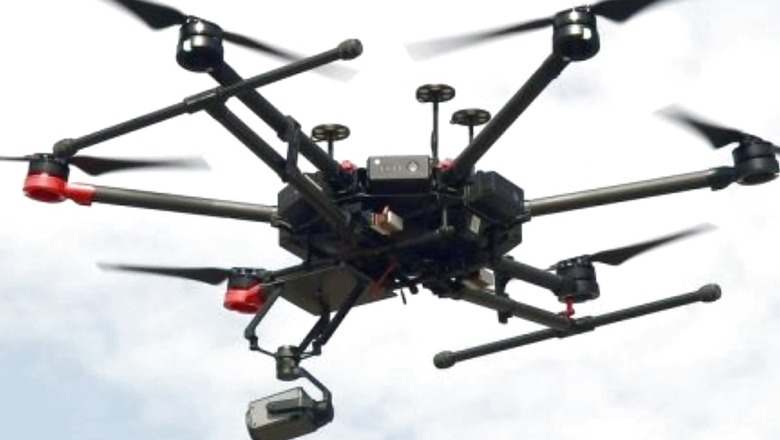
views
Drone sales and popularity have continued to increase in India with the support of liberalised rules. This comes especially at a time when many industries, from hospitality and tourism to retail shopping, have come to a standstill and job losses are on a rise. Drone is one such sector that has been consistently picking up, which is a positive sign.
Application of drones will soon cut across various sectors—construction, education, law enforcement, media and entertainment, precision agriculture, surveying and mapping, and inspection and monitoring. Not just commercial but today various examples of drones in development projects show the possibilities of using them in the fields of humanitarian aid and environmental protection.
The Production-Linked Incentive (PLI) scheme along with the liberalised drone rules issued by the government last month will help the industry realise this growth potential.
The Ministry of Civil Aviation has also indicated that India has the potential to be a global drone hub by 2030 while positively impacting sectors such as infrastructure, surveillance, agriculture, mining, emergency response, transportation, geo-spatial mapping, defence, and law enforcement among others.
And there is no doubt that this will also turn the drone industry into a generator of employment and economic growth, primarily owing to its wide scope, flexibility, and ease of use, particularly in the country’s far-flung and remote areas.
Being in the industry it’s a wonderful moment with the highs of PLI scheme and the new drone policy. It’s a confidence booster to a start-up like Skye Air. The sector will take wings literally!
In its earlier attempts, the government made flying drones legal in 2018 but only under constrained conditions. The Unmanned Aircraft System (UAS) Rules 2021 were released in March but were heavy on official control. Acknowledging the industry’s discontentment, the new drone policy along with the PLI scheme ushers a new era for the industry and also exhibits the determined plans of the policy makers. The recent policy and scheme are indeed revolutionary and will surely positively impact the ease of doing business in the sector.
Moreover, the PLI scheme is unquestionably also a move towards the larger and collective vision of an Aatmanirbhar Bharat. With the central government under the leadership of Prime Minister Narendra Modi permitting the PLI scheme for drones and drone components, there would be no looking back for the sector.
Also anticipating the growth in terms of numbers, it seems to be pointing at an extremely promising future. With the favourable climate set by the new drone policy and the PLI scheme, the drone and drone component manufacturing industry together will witness an investment of over Rs 5,000 crore within a span of three years.
The yearly sales turnover of the drone manufacturing industry is expected to rise from Rs 60 crore in 2020-21 to approximately Rs 900 crore in FY 2023-24. In terms of jobs, the sector will create over 10,000 direct jobs over the next three years. The drone services industry (operations, logistics, data processing, traffic management etc.) is far bigger in scale and is expected to grow up to Rs 30,000 crore in the coming three years. The drone services industry has the potential to generate over five lakh jobs in three years.
Under the new drone rules, the number of obligatory forms have been reduced from 25 to 5, type of fees from 72 to 4, yellow zones from 45 km to 12 km neighbouring airport perimeter. Besides, numerous approvals which were earlier mandatory for R&D and prototype drones have been done away with. Non-intrusive monitoring is the motto the government has followed.
Also, as per the PLI scheme, the incentive for a manufacturer of drones and drone components shall be as high as 20 per cent on the value addition. And to infuse stability, the government has agreed to keep the PLI rate constant at 20 per cent for all three years, an exceptional treatment given only to the drone industry. Furthermore, the government has kept the eligibility norm for MSME and startups in terms of annual sales turnover at a nominal level—Rs 2 crore (for drones) and Rs 50 lakh (for drone components). This will boost the confidence of the existing player as well as encourage more players to enter this space and investors to invest.
The author is co-founder Skye Air Mobility. The views expressed in this article are those of the author and do not represent the stand of this publication.
Read all the Latest News , Breaking News and Ukraine-Russia War Live Updates here.




















Comments
0 comment